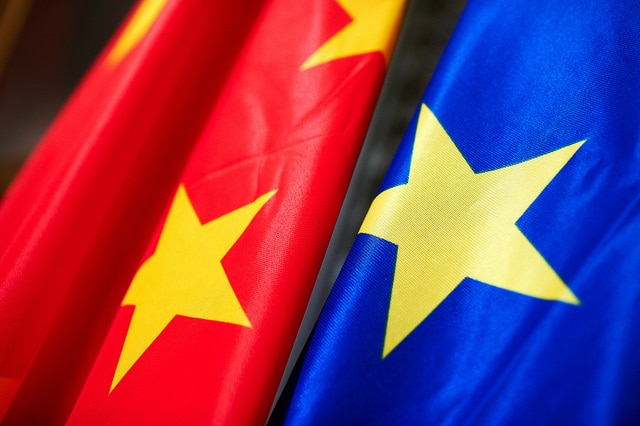The EU and China established a strategic partnership a decade ago. Both entered the partnership with over-expectations of being able to align their interests on many conflicting issues such as international intervention, human rights, market access, and weapons transfers. Those misperceptions fostered disappointment on both sides. One of the main lessons that can be learned from this experience is the need for a sober assessment of this bilateral relationship, which could be more accurately depicted as a strategic partnership in the making.
Besides many difficulties, EU-China relations are still of great importance for both sides. However, their relevance is decreasing for China, due to the relative decline of Europe vis-à-vis other regions and its descending economic dependence on Europe, whereas it is increasing for the EU, particularly since the Eurozone crisis. Thanks to its growing economic muscle, Beijing has become a major international actor with a key role in many of the most pressing international issues that Europe faces. If Europe wants to reverse the weakening Chinese interest in Europe, the EU needs to increase its international profile through the development of the Common Foreign and Security Policy (CFSP). This might be the only course for the member states to deal effectively with China.

Not an easy partnership
In contrast to developments in the 20th Century, Europe is now forced to work with China – and this is not always an easy task. Although both sides agree on promoting a peaceful and stable international order conducive to economic development, they tend to differ on how to do so. For instance the EU prefers multilateralism, strong international regimes, a conditional conception of sovereignty, and a universalist approach to human rights. In contrast, Beijing tends to favor bilateralism and weak international institutions, sometimes resorting to multilateralism and international law for soft balancing a stronger rival. China also promotes the absolute notion of sovereignty and a relativist view of human rights.
Despite these divergences, European countries and China are cooperating fruitfully to ease tensions in some global flash points such as Iran, the Gulf of Aden, and Mali. Enhancing mutual trust through confidence-building measures is central to facilitate these kinds of joint efforts, which are hindered by popular and misleading ideas such as China wants a divided and debilitated Europe or that the EU aims to contain China economically.
Bilateral collaboration between Brussels and Beijing could also benefit greatly from a practical strategy, which would focus on realistic and specific goals. The reforms advanced at the Third Plenum of the 18th CPC Central Committee provide a positive climate to implement this approach through cooperation in fields such as urbanization, social services, environmental protection, and intellectual property rights. If China carries out this new round of significant reforms, the prospects for a successful conclusion of a bilateral EU-China investment agreement and/or a partnership and cooperation agreement would soar dramatically. The impact of these eventual advances could be felt beyond the economic pillar of the EU-China relationship, enabling both sides to discuss more sensitive political and security issues.
[The author attended Friends of Europe roundtable Ten years on: Rebooting the EU-China strategic partnership on 25 November. This text was originally published at Notre Europe on 18 December 2013]


